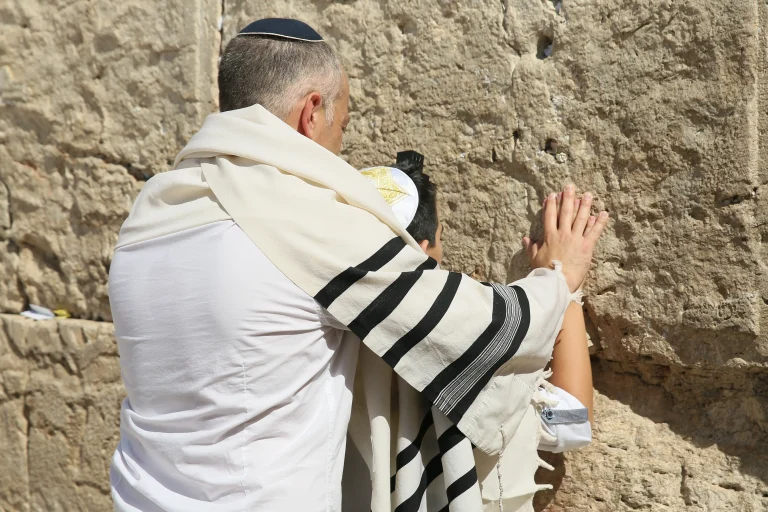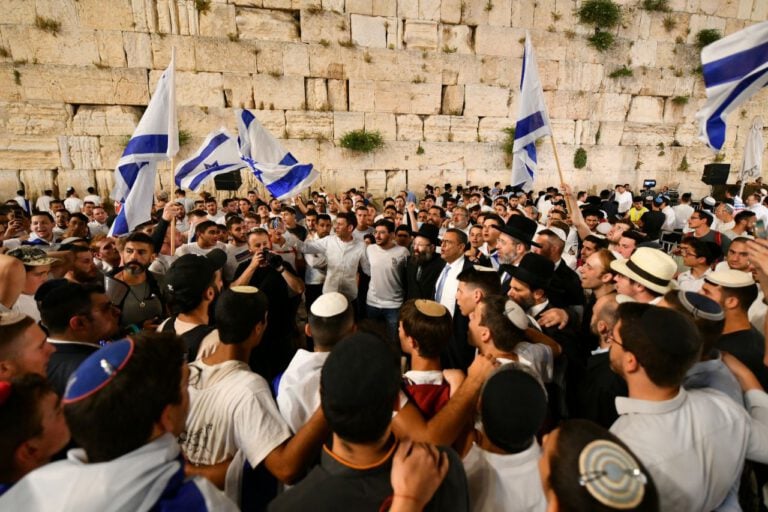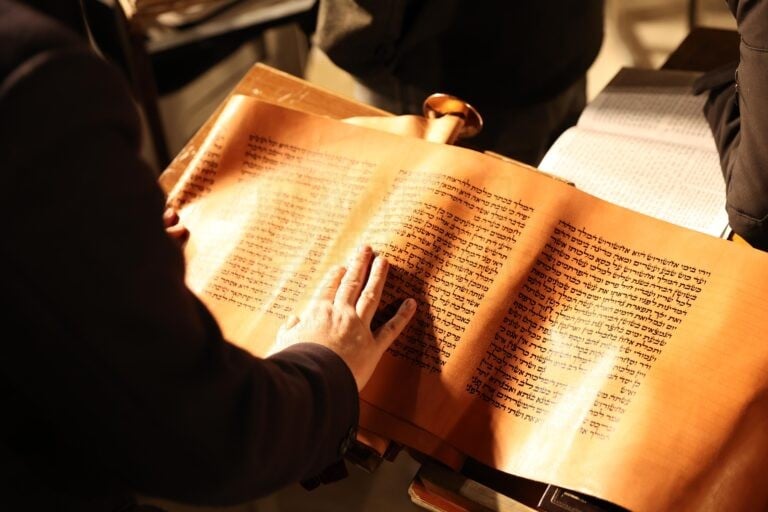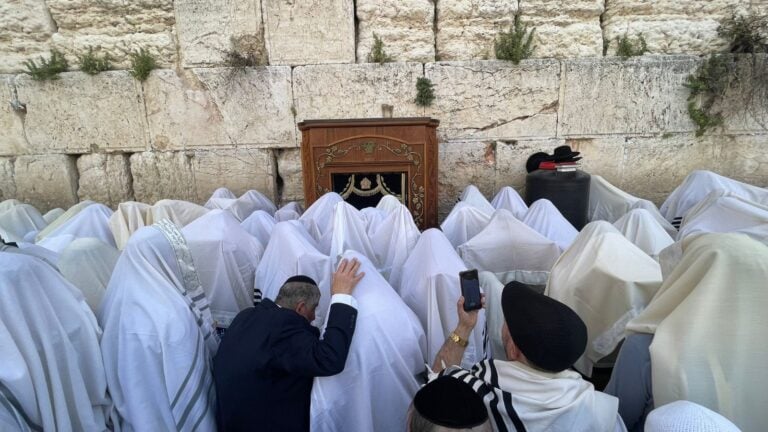Parashat Mishpatim – 5782
Rabbi Shmuel Rabinowitz, Rabbi of the Western Wall and Holy Sites
“Derech eretz (decency, kind behavior) precedes Torah.” This is a famous saying of Jewish sages. It is used in different contexts in Judaism, sometimes to encourage proper behavior as a condition of religious life. By examining the parashot we are currently reading, we can attain a profound and comprehensive grasp of this saying.
Last week, we read Parashat Yitro with its description of the Revelation at Mount Sinai and the ten commandments given by G-d. The ten commandments are ten fundamental directives and principles in the Torah. But the way of life, the laws and individual regulations in the Torah are unmeasurably longer. Immediately after receiving the Torah, Moses began to expand on it and get into the details of G-d’s commandments.
The order in which the Torah chooses to present things is fascinating and even a bit strange. First, in the last verses of Parashat Yitro, the Torah lays out some principles relating to building a temple and altar. Immediately afterwards, at the beginning of Parashat Mishpatim, the Torah suddenly presents an entire system of directives termed “mishpatim,” the laws of justice that must guide society and which should be enforced through courts. These laws of justice get into the smallest of details in the interactions between people, and demand complete justice, along with attention paid to the needs of the weak. When Parashat Mishpatim ends, the Torah moves on to discussing the building of the Mishkan, the Tabernacle, that temporary temple that accompanied the children of Israel during their journeys in the desert, which was the prototype for the Temple established in Jerusalem centuries later.
The question that arises is – Why does the Torah suddenly stop the flow of commandments relating to the temple, the altar, and worshipping G-d and move abruptly to a description of the justice and court system?
This question was pondered by Rabbi Samson Raphael (RaSHaR) Hirsch, a rabbi and biblical commentator in 19th century Germany, known as the father of the “Torah with derech eretz” method. He writes as follows:
“And these are the laws” – in previous verses, the Torah wrote of the building of the altar, which symbolizes a basic principle: Our entire relationship with G-d must be understood as something that provides a strong and unshakable basis for building a society in the spirit of justice and humanity…
This principle is connected with the word “and” to “these laws,” those same laws which will establish the building of a Jewish society on the basis of justice and humanity. By doing so, the sword will be distanced, meaning violence and cruelty, from the Jewish state, and only then will this society be worthy of establishing an altar to G-d within it. Therefore “these laws” precede the building of the Mishkan.
(RaSHaR Hirsch, Exodus 21, 1)
Rabbi Samson Raphael did not see this pause between directives relating to the building of the altar and of the Mishkan as coincidental. In his opinion, the Torah was trying to convey an important message: The purpose of our relationship with G-d is to provide a strong basis for the building of a society in the spirit of justice and humanity. The reward for establishing such a society is a closer relationship with G-d.
This is the message our sages convey through the saying “Derech eretz precedes Torah.” Moral interpersonal interactions precede the laws of G-d and are essential conditions for their existence. Divine laws are there to make basic human morality gentler and more precise.
Parashat Mishpatim gives us the divine tools to sharpen our sense of righteousness and to connect it to gentleness, compassion and social responsibility, and through them to reach connection with G-d.









